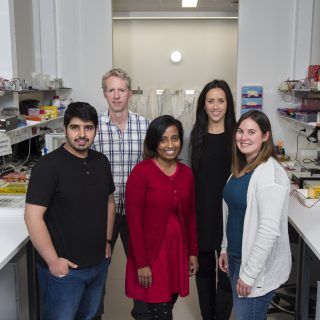Treatment type: Immunotherapies
-
New role for cell death-related protein in stomach cancer
New research from Hudson Institute of Medical Research is showing how a pro-inflammatory protein could offer new hope for stomach cancer treatment. A study, led by Dr Virginie Deswaerte and Professor Brendan Jenkins, found that modifying key components of the inflammatory response in the body could help to prevent tumour growth. The findings have been… Read more
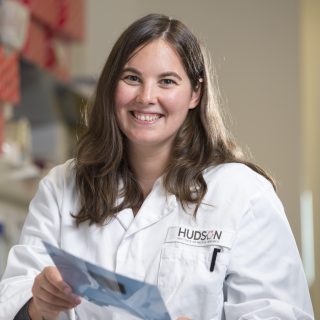
-
Fighting a deadly pandemic
Why do seasonal strains of influenza make many people sick yet cause relatively few deaths, while 40 per cent of people affected by strains of avian influenza, or ‘bird flu’, succumb to their infection? A discovery by Associate Professor Ashley Mansell could form a strategy to protect the world’s population from a potential global outbreak… Read more
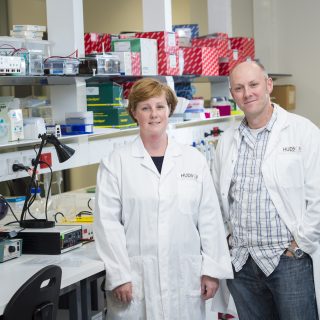
-
Could gut bacteria be harnessed to fight cancer?
The gut microbiome, the vast ecosystem of bacteria that live within our digestive system, is becoming increasingly recognised for its essential role in supporting our physical and mental health.… Read more
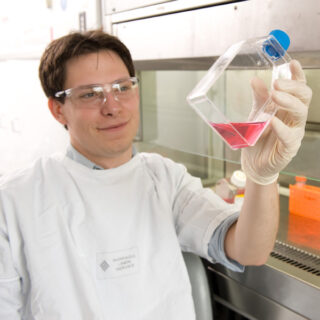
-
Harnessing immune therapies to combat pancreatic cancer
Investigating the role of the immune system in the fight against pancreatic cancer is the focus of innovative research at Hudson Institute, thanks to new funding announced on World Pancreatic Cancer Day.… Read more
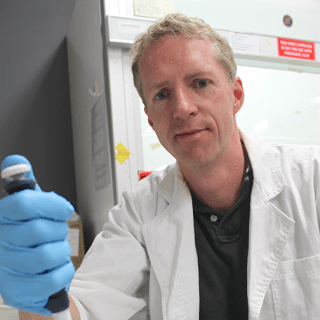
-
Emerging influenza research leader
Emerging leader in viral pathogenesis and immunology, Dr Michelle Tate has received a promotion to lead her own research group. Dr Tate’s research group, ‘Viral immunity and immunopathology’ will focus on the understanding the induction of hyperinflammation during an influenza virus infection. “My research aims to better understand the mechanisms that contribute to the induction… Read more

-
‘Missing link’ explains how viruses trigger immunity
A discovery by Melbourne researchers has solved a longstanding mystery of how viruses trigger protective immunity within our body. The research team demonstrated a protein called SIDT2 was crucial for cells to detect viral components in their environment, and initiate an immune response to reduce the virus’ spread. As well as being an important part… Read more

-
Promising new treatment for incurable premature lung disease
Hudson Institute researchers have discovered a potential safe and effective treatment for bronchopulmonary dysplasia (BPD), which could save preterm babies from the severe lifelong effects of this incurable premature lung disease.… Read more
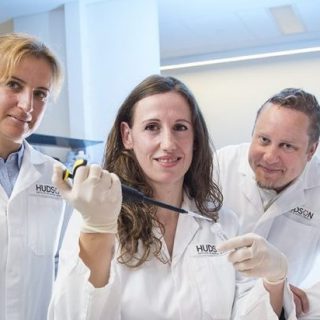
-
Protein found in female reproductive tract could halt HIV spread
Scientists from Hudson Institute of Medical Research and Deakin University have shown that a naturally occurring signalling protein found in the female reproductive tract, interferon epsilon, can block the replication of human immunodeficiency virus (HIV) in human cells, and could form a first-line response to the virus.… Read more
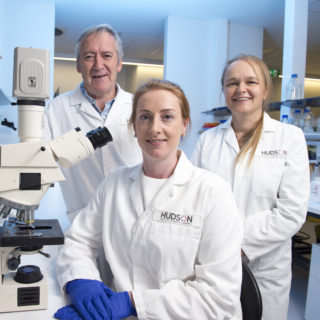
-
WWI antiseptic could fight 21st century viral infections
Melbourne researchers have shown that a century-old topical antiseptic used to treat wounds and ‘sleeping sickness’ in Australian soldiers in World War One could activate the immune system to protect against viral infection, and may prove key in the fight against antibiotic resistance.… Read more
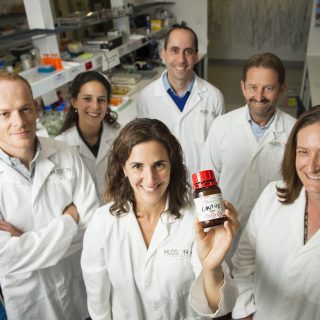
-
Researchers identify key driver of devastating muscle wasting disease affecting cancer patients
Lung cancer is the leading cause of cancer death worldwide, and is frequently associated with cachexia. Cachexia is a devastating syndrome of weight and muscle wasting, affecting as many as 80 per cent of advanced cancer patients.… Read more
